Driftin' Blues
Driftin' Blues
In 1944, Charles Brown was hired by guitarist Johnny Moore, whose brother Oscar Moore was the innovative guitarist in the Nat "King" Cole Trio. Johnny was forming his own trio, The Three Blazers (Johnny Moore – guitar, Eddie Williams – bass, Charles Brown –piano and vocals). The group, like the "King" Cole Trio, epitomized the cool, relaxed West Coast piano trio style but brought to the sound a melancholy blues quality that was distant from Cole's swinging arrangements. The Three Blazers' hit recording of Brown's “Driftin' Blues” was the first record in years to knock Louis Jordan from the top of the R&B charts.
Driftin’ Blues
Driftin' Blues is credited to Brown, Moore, and Williams however the official release of Brown’s complete recording for Aladdin Records sites him as the sole composer. There also exists, as a clear antecedent to this song “Walking and Drifting Blues” (Brown’s original working title) recorded by Chicago bluesman Amos ‘Bumble Bee Slim’ Easton, which was recorded on april 1935. Although clearly different songs, there is little doubt that Brown drew inspiration from Easton’s lyrics.
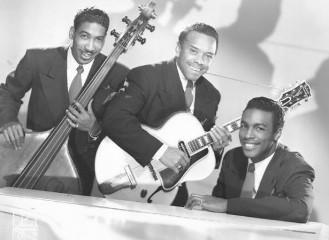
The Three Blazers
Brown's inspiration for the tune was a gospel song his grandmother had taught him and he felt conflicted about mixing gospel and blues. In an interview, Brown described "Driftin' Blues" as "the first song that I wrote down and tried to sing". Music critic Dave Marsh adds that Brown wrote it while still in high school.
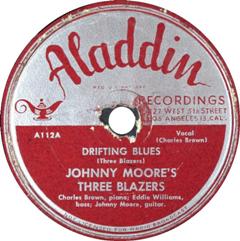
The Three Blazers - Driftin Blues, 1945
One of the most influential singers of his day, Charles Brown (Sept. 13, 1922 - Jan. 21, 1999) was an accomplished classical pianist whose career began in 1943 after he moved to Los Angeles. He played with the Bardu Ali band before joining Johnny Moore’s Three Blazers. Recording for a variety of labels, the band found success with (besides “Driftin’ Blues”) - “New Orleans Blues,” “More Than You Know” and “Merry Christmas Baby,” to name just four of the trio had with Brown.
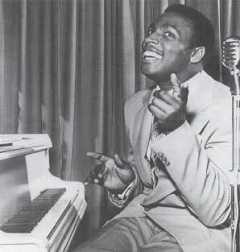
Charles Brown
Irked that he was not receiving the same billing or money as guitarist Moore, who neither wrote nor sang, Brown left the group in 1948 to form his own trio and continued to record for Aladdin through 1952. His smooth, quiet vocals (he rarely recorded up-tempo material) were perfect for the sophisticated urban blues audience of the day, and he managed to produce two number one rhythm-and-blues hits, “Trouble Blues” (1949) and “Black Night” (1951), during this period.
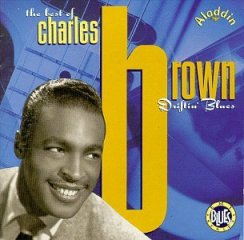
Charles Brown - Driftin' Blues
As rhythm and blues became more raucous and laid the foundations for rock and roll, Brown, who was too gritty to follow Nat King Cole (whom he superficially resembled) into the pop arena, continued to record with less success, although “Please Come Home for Christmas” was a hit in 1961. Eventually he retired, occasionally performing in lounges and giving piano and organ lessons.
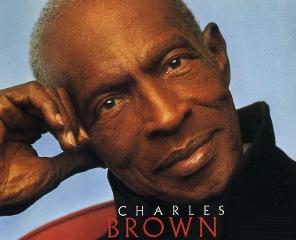
Charles Brown
Rediscovered by blues enthusiasts in the early 1980s and helped financially by one of the first grants from the Rhythm and Blues Foundation, he found a new audience, recorded several albums that showed his powers undiminished by time, and toured with Bonnie Raitt in 1990. Brown was posthumously inducted into the Rock and Roll Hall of Fame in 1999.
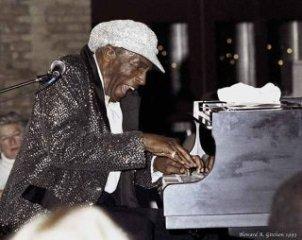
Charles Brown
Commercially “Drifting Blues” was very successful for Brown, and his smooth vocal style would serve as a standard for several versions to follow. This smooth “crooning” delivery would be perpetuated by artists such as Billy Eckstine, who recorded this title with Count Basie’s Orchestra in 1959, as well as Sam Cooke on his 1963 Mr. Soul. Ray Charles also released a version of this song in the 1960s.
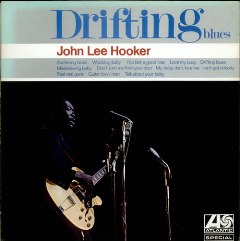
John Lee Hooker - Driftin' Blues
Other versions, by blues artists John Lee Hooker, Lightnin Hopkins, Bobby Bland, B.B. King, Albert King and John Hammond tend to treat this songs as more of a straightforward blues and thus their vocal style is not in the familiar crooning style of the 1940s and 1950s. These early blues versions would led to interpretations by rock artists such as Paul Butterfield, Peter Townsend, Carlos Santana, Marshall Tucker Band and Eric Clapton.
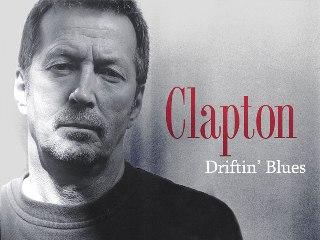
Eric Clapton - Driftin' Blues
Charles Brown’s version of the song follows a twelve-bar blues chord progression and is performed at a moderately slow tempo in the key of E (notated in 12/8 time). The instrumentation, including Moore's electric guitar solo, is understated and reflects the influence of the post-World War II cool jazz movement. Brown described it as "a kind of melancholy type of blues, with feeling" that allowed him to tell more of a story than traditional blues.
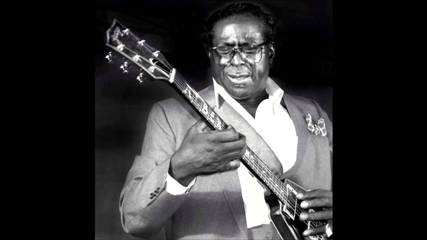
Albert King plays Driftin' Blues
Driftin' Blues was inducted into Blues Hall of Fame in 1989 in the "Classics of Blues Recording" category, which noted that it was "one of the records that helped define the burgeoning postwar West Coast style of smooth 'lounge blues'". In 1995, it was included in the Rock and Roll Hall of Fame list of "500 Songs That Shaped Rock and Roll".
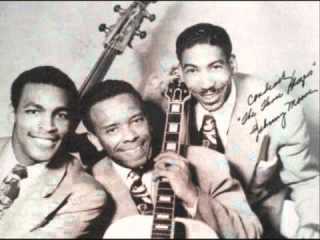
The Three Blazers
Charles Brown - Drifting Blues Lyrics
Well, I'm drifting and I'm drifting Like a ship out on the sea Drifting and I'm drifting Like a ship out on the sea Well, I ain't got nobody In this world to care for me If my baby Would only take me back again If my baby Only take me back again 'Cause, darling, good for nothing I haven't got no friend I give you all my money Tell me what more can I do I give you all my money Tell me what more can I do, can I do You just a good little girl You just won't be true Bye bye, baby Baby, bye bye, bye Bye bye, baby Baby, bye bye, bye It's gonna be too late, baby I'll be so far away
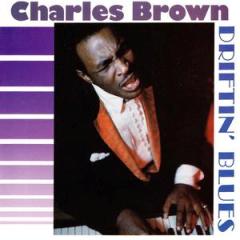
Charles Brown - Driftin' Blues








